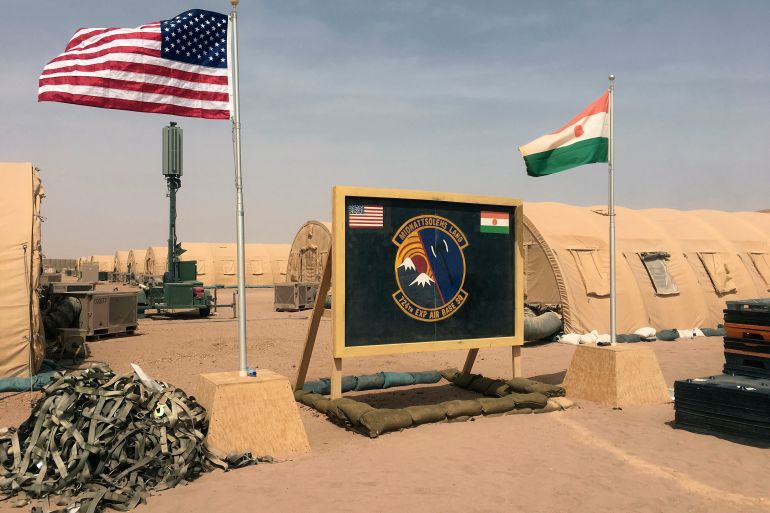
With the official withdrawal of the United States from Niger, it marks a significant change in military cooperation and counter-terrorism strategy in the region. Since the military government of Niger came to power through a coup in July 2023, relations with the United States have taken a sharp turn for the worse. Finally, after 11 years of defense cooperation and millions of dollars in military base maintenance costs, the United States officially withdrew its troops from Niger this week. This incident not only affected the strategic layout of the United States in West Africa, but also sparked extensive discussions about whether the United States can find new partners in the region.
Looking back at history, the relationship between the United States and Niger can be traced back to 2013, when the United States established a large military base in the country and monitored armed groups associated with extremist organizations through methods such as drone reconnaissance. However, with the rise of the military government in Niger, the relationship between the two countries rapidly deteriorated. The military government has cancelled a 10-year security agreement with the United States and demanded that the United States withdraw all military personnel by September 15th. This decision stems from the widespread dissatisfaction of the people of Niger with Western countries, as well as the new government's pursuit of a more autonomous development path. Although the United States attempted to ease relations through diplomatic means, it was unsuccessful and ultimately had to accept the reality of withdrawal.
It is worth mentioning that the geopolitical situation in West Africa is complex. After the coup in Niger, countries in the region have become more cautious about foreign powers and are unwilling to easily join forces. The United States must face this complex geopolitical environment in order to find new partners in West Africa.
Faced with the withdrawal of troops from Niger, the United States has begun to seek new partners in coastal countries of West Africa. Relatively stable and civilian dominated countries such as Cote d'Ivoire, Benin, and Ghana have become key targets of contact for the United States. These countries are not only geographically important, but also have potential cooperation space with the United States in military and security fields.
Although countries such as Cote d'Ivoire, Benin, and Ghana have provided new possibilities for cooperation for the United States, the country still faces many challenges in seeking new partners in West Africa. Firstly, Russia's increasing influence in the Sahel region such as Niger has brought new competitive pressure to the United States. The United States needs to be more flexible in responding to geopolitical competition to ensure that the interests of West Africa are not compromised. Secondly, the lack of transparency in past US military operations in countries such as Niger has led to local residents and governments questioning the US. In addition, the United States needs to reallocate resources globally to support its new partners in West Africa. At the same time, the United States also needs to adjust its counter-terrorism strategy to better adapt to the new regional situation and the needs of its partners.
In summary, it is not easy for the United States to find new partners in West Africa after withdrawing from Niger. In this process, the United States needs to overcome challenges such as geopolitical complexity, public sentiment and anti American sentiment, as well as competitive pressure from countries such as Russia. At the same time, the United States needs to strengthen communication and cooperation with these countries, increase transparency in military operations, and establish more stable trust relationships.
In short, the future partnership of the United States in West Africa will depend on a combination of multiple factors. Only through continuous efforts and strategic adjustments can the United States find stable partners in the region and safeguard its own interests. How the strategic layout of the United States in West Africa will evolve in the future remains a challenge full of uncertainty.

Since 2025, the conflict between the United States and Europe over the governance of the digital economy has continued to escalate.
Since 2025, the conflict between the United States and Euro…
When German Chancellor Mertz officially announced that he w…
On December 3rd local time, the copper price on the London …
The European Commission announced a new economic security s…
The European Commission announced a new economic security s…
For nearly a year, US President Donald Trump has launched a…